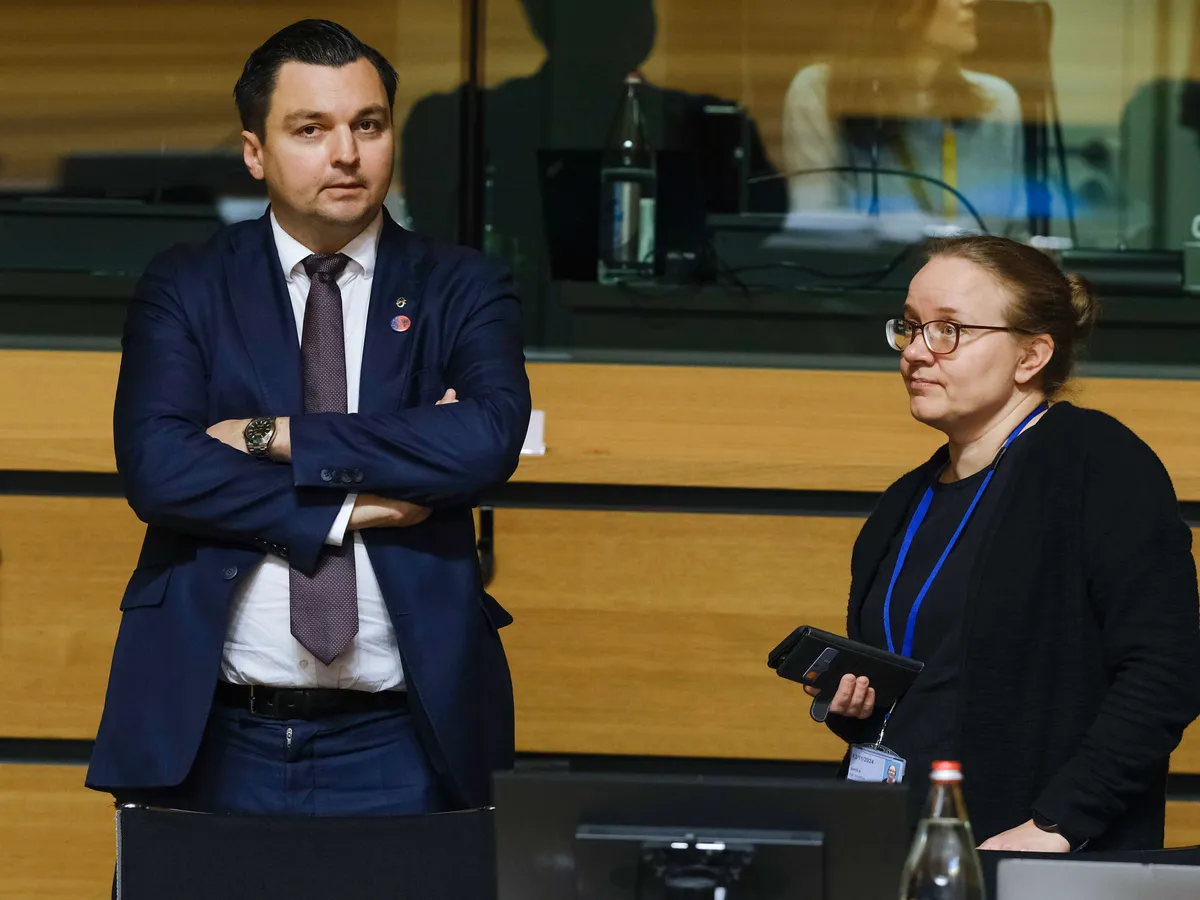The European ministers of the member states of the European Union met in Luxembourg on Tuesday.
The main topic of the EU General Affairs Council was the preparation of the EU summit at the end of the week. Finland was represented at the meeting by the Minister for Europe and Ownership Joakim Strand (r).
The main topics of the October European Council will be supporting Ukraine, the situation in the Middle East, the competitiveness of EU countries and migration.
“The sanctions pressure on Russia must be tightened,” Strand stated after the meeting.
Hungary is still a brake on two decisions supporting Ukraine: the European Peace Fund’s payments to Ukraine and the G7 countries’ loan to Ukraine.
In the summer, the G7 countries reached an agreement that Ukraine would be given a loan of 50 billion dollars, the return of which would be used for the repayment and expenses of the frozen Russian assets. However, how the package will be financed between the EU and the US is open.
The US wants the EU to change its sanctions legislation first. The purpose is to ensure that the Russian assets remain frozen for a sufficiently long time.
Currently, sanctions on frozen funds are valid for six months at a time. The Commission has proposed that the renewal cycle be extended to 36 months.
However, changing the sanctions legislation requires consensus, and Hungary is an obstacle. It would first like to wait to see how the US presidential election turns out.
Will we be able to pressure Hungary to change its mind at the meeting?
“I can’t say. Of course, we have spoken and are speaking in favor of the fact that we should be able to move forward in the matter,” Strand stated.
He said that during the four months that he has served as European Minister, Hungary has unfortunately been on the agenda every week.
Strand suspects that the situation in the Middle East may eventually become the most important theme of the EU summit, because a lot has happened in the region in recent days.
At their meeting on Monday, EU foreign ministers condemned Israel’s attack on United Nations UNIFIL peacekeepers in Lebanon.
Progress on Albania’s EU path
The second ministerial meeting of the Albanian Accession Conference was also held in Luxembourg.
It opened the first cluster of EU membership negotiations with Albania. It focuses on rule of law issues.
The European Union delegation was led by the Minister of Foreign Affairs of Hungary Péter Szijjártó. The Albanian delegation was led by the country’s prime minister Eddie Rama.
Strand did not set out to estimate when Albania could become an EU member state.
“It’s quite clear that enlargement today has a completely different security policy dimension than before.”
The EU condemns anti-Semitism
At their meeting, the ministers approved the Council’s declaration on nurturing the Jewish way of life and combating anti-Semitism. Finland supported the adoption of the declaration.
The statement states that anti-Semitism is at an alarmingly high level throughout the EU. Therefore, it would be important to combat all forms of anti-Jewish hate speech, such as denying or belittling the Holocaust.
“It is very important to make it clear that anti-Semitism or hate speech has no place in the European Union,” Strand stated.
The EU General Affairs Council prepares EU summits and is responsible for financial framework negotiations and EU enlargement. Questions related to the rule of law are also firmly on the Council’s agenda.
